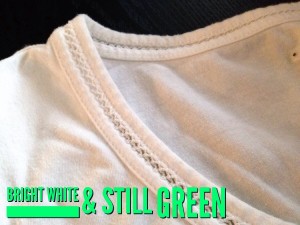 This morning when I did my first check of my social media streams, I came across a post from the fine folks at Cotton Incorporated who celebrate “the touch, the feel of cotton, the fabric of our lives.” The article begs the question “The Cotton Controversy: Does Green Have To Be At Odds With Our Whites?”
This morning when I did my first check of my social media streams, I came across a post from the fine folks at Cotton Incorporated who celebrate “the touch, the feel of cotton, the fabric of our lives.” The article begs the question “The Cotton Controversy: Does Green Have To Be At Odds With Our Whites?”
The author of the piece — Alden Wicker — and I differ significantly in our background knowledge and experiences with cotton, but we both appreciate dialog with people on other parts of the spectrum and realize that is an important part of learning. Her introduction to the article shows she listens to very different descriptions of cotton than you normally see here on my blog but I think it’s important that I acknowledge this sort of information is out there.
You wouldn’t think a nice, bland textile like cotton would be so controversial. But “The Fabric of Our Lives” has become a flashpoint in the battle for more sustainable and ethical clothing. Advocates of eco-friendly fashion accuse the cotton industry of heavy pesticide and herbicide use, dangerous working conditions, and even putting the consumer’s health at risk when we wear its products.
Given how passionate I am about the aforementioned issues, I jumped at the chance to debate a real, live cotton scientist. As a 12-year employee of Cotton Inc., Dr. Ed Barnes’ loyalties definitely lie with conventional cotton. But, I hoped he, being a scientist, would treat me to some real talk.
It is clear that Alden listened and did some checking back on things too. One of the first questions she asked that Ed Barnes of Cotton Incorporated answered challenged what she knew & she checked his facts.
Alden Wicker: Thank you for speaking with me. As you know, the impetus for this interview was Amber Valletta’s April story for Refinery29. The first thing said was that conventionally grown cotton is one of the most heavily sprayed plants in farming.
Ed Barnes: That is definitely not the case. Critics like to say that cotton uses 25% of the world’s pesticides. It’s one of the urban legends that floats out there on the Internet. Global data is hard to get, but we use data from Cropnosis that tracks sales of pesticides around the world. It’s not the perfect data source, since it’s based on dollar values, but we know that cotton uses about 6% of pesticides used. This was surprising to me, but there’s a lot more pesticide use in fruits and vegetables.
Editor’s note: However, also according to Cropnosis, a private company in the U.K., cotton’s share by value of global pesticide consumption declined from 11% in 1988 to 6.8% (worth $3 billion) in 2008. Similarly, the share of insecticide use declined from 19% in 2000 to 15.7% in 2008.
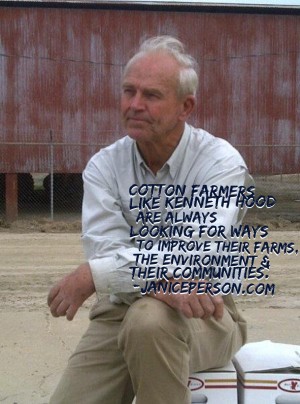 The facts show what I have seen throughout my career — cotton farmers –like my friend Kenneth Hood in the photo — are always improving, doing better for their farms, the environment, their communities and their families. And while I know a lot of people say there is no perfect industry, I would suggest that continual improvement is perfection!
The facts show what I have seen throughout my career — cotton farmers –like my friend Kenneth Hood in the photo — are always improving, doing better for their farms, the environment, their communities and their families. And while I know a lot of people say there is no perfect industry, I would suggest that continual improvement is perfection!
I can’t highlight all the interesting pieces in the article, cause to me all three pages were interesting and that would be theft if I ran more than a couple of excerpts but I encourage you to read Conventional Cotton Facts And Numbers- Is It Safe?.
Beyond the facts, there is a passion that, at the very least, matches Wicker’s, it even leads people like me to tweet about my love of cotton and to create series of posts about the natural fiber here… we also passionately seek improvements!
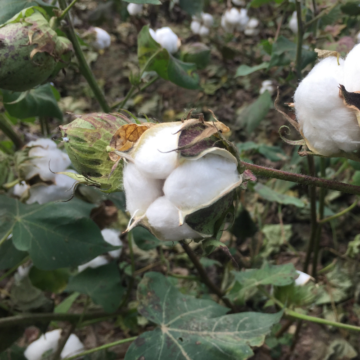
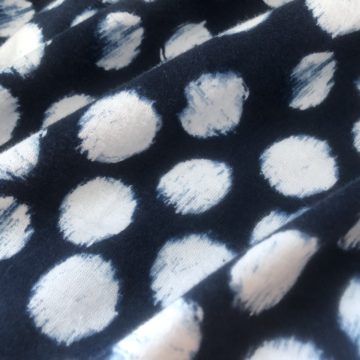
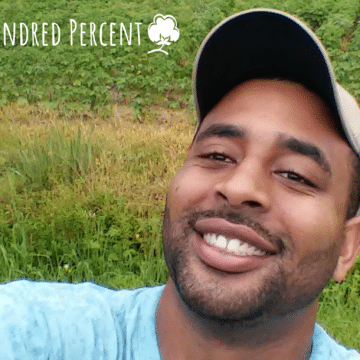
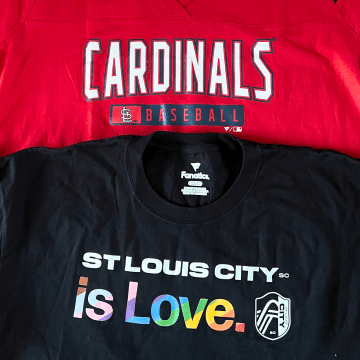
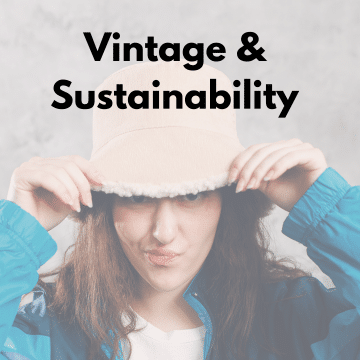
This is a very good Q-and-A piece. You’re right that the woman interviewing Dr. Ed Barnes appears to come at large-scale agriculture from a negative standpoint, but she’s at least honest enough (I assume) to print responses that don’t gibe with her own views.
Yeah, I was impressed by the conversation and willingness to hear the other viewpoint. That’s something we all need to do now and then!